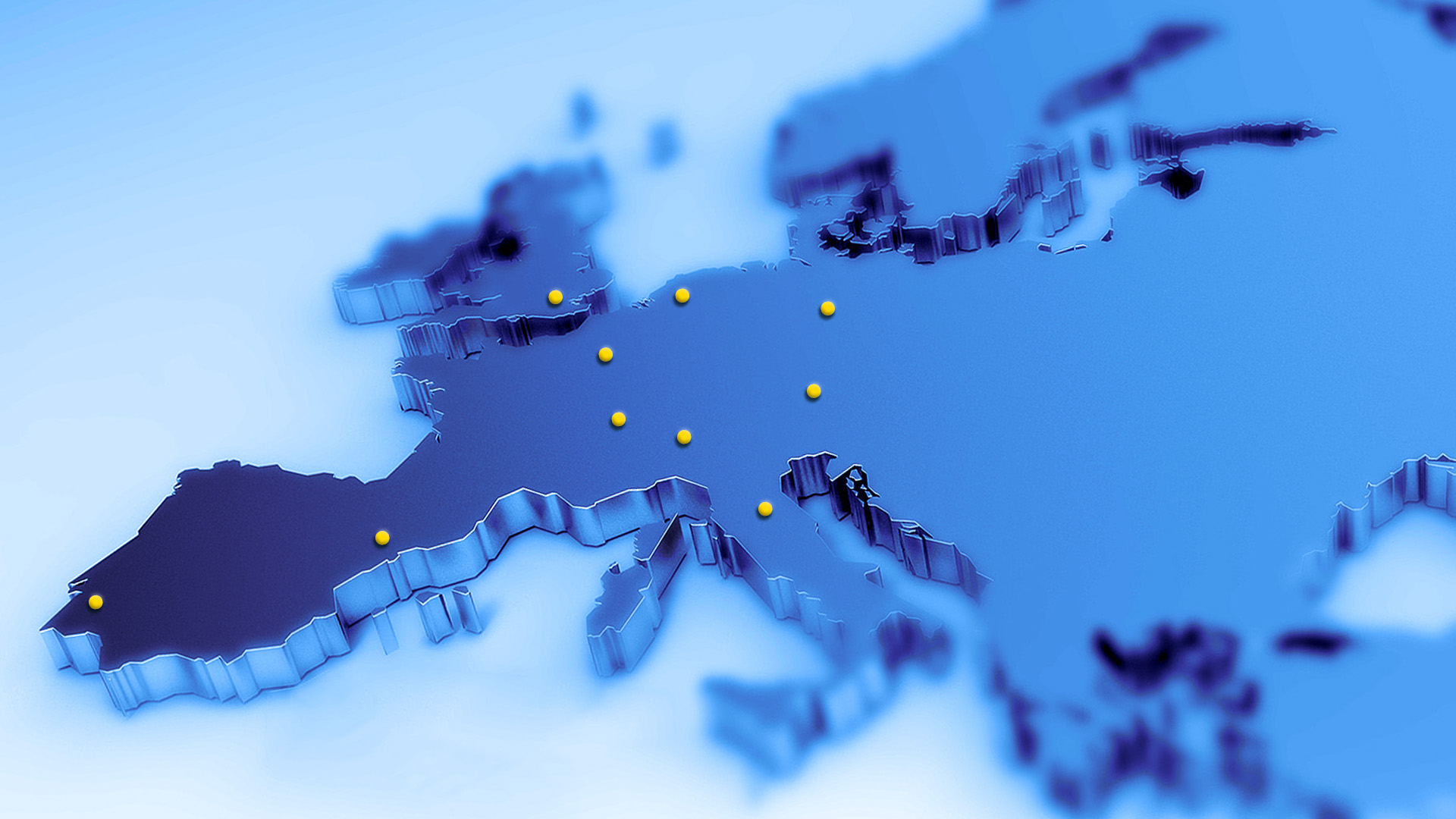Ten years into building LMNS, one thing has become crystal clear: the traditional structures of business collaboration are fundamentally misaligned with how many independent experts actually want to work together and participate in projects across Europe.
What began as my response to industry support requests for technology and business development, quickly revealed a deeper truth: the challenge wasn’t just about handling more clients or projects – it was about reimagining how skilled professionals could join forces across borders without rebuilding the very hierarchies we were trying to escape.
The Power of “Gunnen” in Professional Relationships
At the heart of LMNS lies a Dutch concept that defies simple translation: “Gunnen.” Unlike the transactional “what’s in it for me?” mindset that generally dominates corporate thinking, gunnen embodies generosity without expectation. It’s about creating space for others to thrive, understanding that a rising tide lifts all boats.
Many business cultures already emphasize trust-based collaboration as a foundation for successful partnerships. Gunnen takes this a step further by prioritizing goodwill and an intrinsic willingness to grant opportunities to others without immediate personal gain.
This isn’t naive idealism – it’s a practical philosophy that has guided our work with clients across Europe. When team members operate from a place of gunnen rather than ego, the collaborative magic happens. Ideas flow freely. Solutions emerge organically. Expertise is shared without territorial boundaries.
But try explaining this to traditional corporate structures, and you’ll quickly hit a wall of puzzlement. The prevailing business model remains stubbornly rooted in hierarchy, control, and the bizarre notion that humans are “resources” to be managed like office furniture.
The 40-Hour Myth and the Freedom of Expertise
The 9-to-5 constricted 40-hour workweek for many is an industrial-age relic that makes little sense for knowledge workers and specialists. The Netherlands hasn’t become the European capital of self-employment and part-time work by accident. Skilled professionals increasingly recognize that their value comes from expertise, judgment, and creative problem-solving – not from filling arbitrary hours under watchful management.
When I stepped away from being a “boss” (I have been a founder, owner, team leader, project lead, manager, director and board member), it wasn’t about avoiding responsibility. It was about acknowledging a simple truth: if I need to monitor everything another expert does, either I’m in the wrong role or they are. Either way, it’s counterproductive for everyone involved.
The results speak for themselves. With the LMNS team and my Yiist – Change Agents partner Jan van der Spoel, we’ve delivered solutions for clients that would have been impossible within traditional structures. Our efficiency comes precisely from eliminating the overhead of unnecessary management layers and hour-tracking systems that measure presence rather than impact. And our borderless agility as flexible project partners that can scale up to include expertise if and when needed, means we can effectively tailor our services to the needs of our clients.

The European Paradox: United in Theory, Divided in Practice
Here’s where the European project faces its most practical test. While we talk about a unified market and borderless collaboration, the reality for small operators with a distributed team is starkly different. Try forming a truly equal partnership between independently working professionals across EU member states, and you’ll quickly encounter a bureaucratic maze that would make Kafka proud.
The European Economic Interest Grouping (EEIG) was supposed to solve this problem. In theory, it enables cross-border cooperation for economic activities. In practice, it remains inaccessible to solo entrepreneurs and small operators who form the backbone of innovation across the continent. The financial and administrative requirements often make it impractical for small-scale professionals to utilize effectively.
LMNS has functioned as a de facto EEIG from the beginning, but without the legal structure to match. We’ve had to navigate a complex web of national regulations, different tax systems, and administrative hurdles that drain energy from our actual work. And we’re far from alone in this struggle.
The irony is palpable: in an era where digital collaboration makes physical borders increasingly irrelevant, EU professionals remain trapped within national administrative frameworks that weren’t designed for how we actually work today.
What a True European Collaboration Framework Needs
The EU prides itself on fostering innovation, but its legal structures haven’t kept pace with the evolution of professional collaboration. What would a truly effective framework look like?
- First, it would embrace the principle of equal partnership without forcing unnecessary hierarchies. No mandatory “managers” or “directors” when what we really need is fluid collaboration among peers.
- Second, it would offer straightforward tax treatment across borders, eliminating the current situation where cross-border collaborators face double-reporting nightmares and inconsistent treatment.
- Third, it would recognize that modern work isn’t about filling hours but about delivering value – regardless of when or where that happens.
- Fourth, it would be accessible to solo professionals and small teams without requiring the founding and overhead of traditional corporate structures.
Most importantly, it would embody the spirit of “gunnen” – creating space for mutual success rather than zero-sum competition.

From Philosophy to Practice
This isn’t just philosophical musing. The future competitiveness of Europe depends on our ability to enable fluid collaboration across borders. While large corporations can afford the legal departments to navigate complex international structures, independent professionals and small businesses need accessible frameworks that match how we actually work.
LMNS stands as living proof that this collaborative model delivers exceptional results. We’ve succeeded not despite our non-hierarchical approach, but because of it. Imagine what could be possible if the regulatory environment actively supported this way of working rather than placing obstacles in its path.
The European Commission has acknowledged the need for better frameworks for SME collaboration, but concrete actions have lagged behind the rapidly evolving reality of work. As we navigate the post-pandemic landscape with increasingly distributed teams, the need for a new collaborative framework has never been more urgent.
After a decade of building LMNS across borders, I’m convinced that the future belongs to fluid, expertise-based collaboration rather than rigid corporate hierarchies. The question is whether Europe’s legal frameworks will evolve quickly enough to make this future accessible to all.
—
Note:
The shift towards independent work in Europe is undeniable. Between 2009 and 2020, the number of freelancers in the EU grew by 24%, making it the fastest-growing labor segment. The Netherlands exemplifies this trend, where two-thirds of all enterprises are now sole proprietorships. By 2026, projections suggest that 43 million people across the EU will be freelancers. This evolution reflects a growing preference for expertise-driven, flexible work structures over rigid corporate hierarchies. Yet, while digital collaboration enables seamless teamwork across borders, national regulations remain outdated, forcing independent professionals to navigate unnecessary administrative burdens rather than focusing on delivering value.
Discussions on improving cross-border collaboration for independent professionals have been ongoing within the EU. The European Commission’s SME Strategy (2020) emphasizes reducing regulatory burdens and enhancing access to cross-border business opportunities, though concrete frameworks remain limited. Initiatives like the European Freelancers Movement and industry groups such as the SMEunited association continue to advocate for fairer tax treatment, simplified administrative processes, and legal recognition of new work structures. Meanwhile, reports from think tanks like Bruegel and CEPS highlight the need for updated regulations to support modern, flexible collaboration models across Europe.
https://www.linkedin.com/pulse/business-beyond-borders-european-paradox-roland-biemans-cmfre

Comments are closed